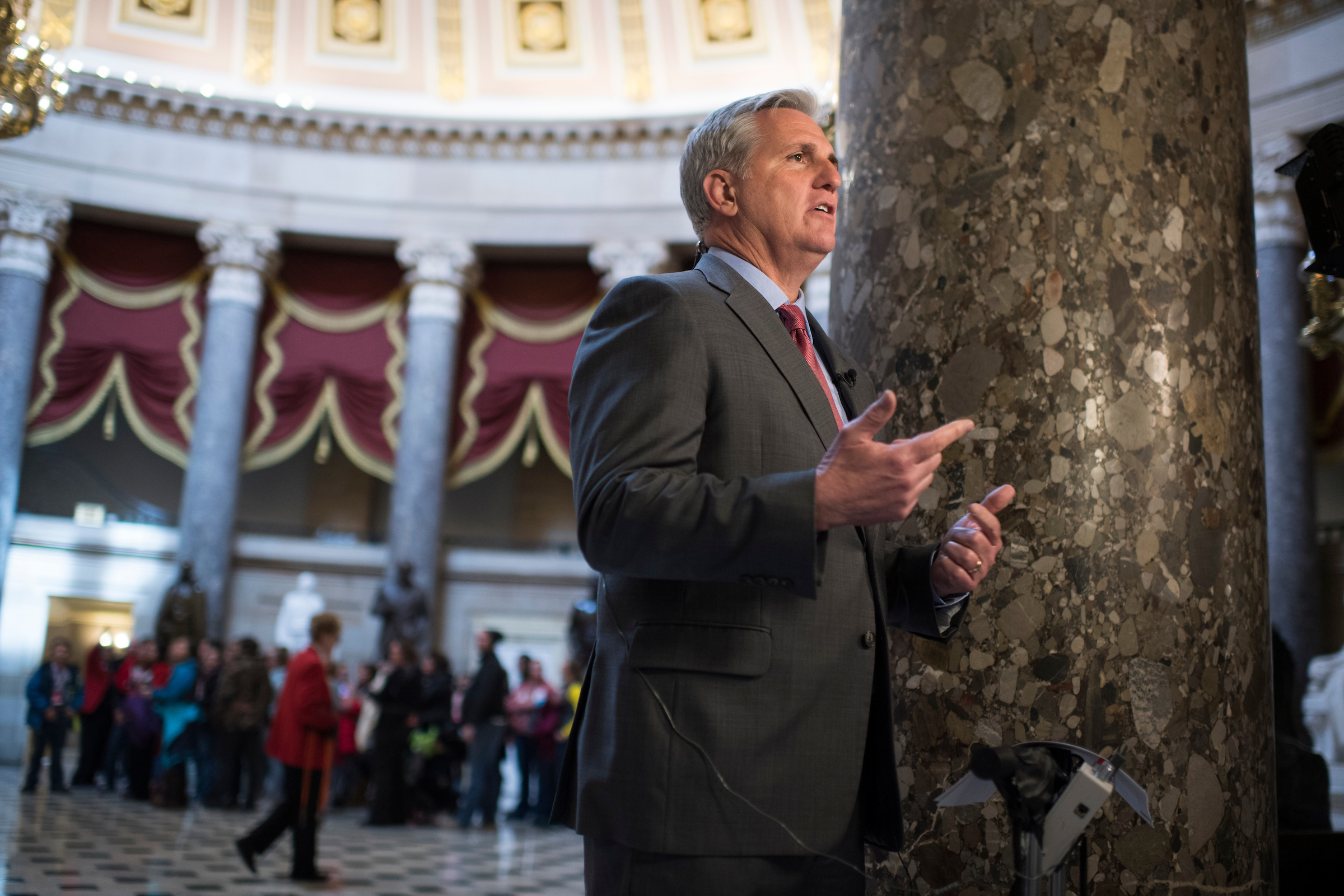House Work Week Gets Shorter
GOP leaders cancel Friday votes again

House Republican leaders started 2017 with plans for the lower chamber to have some atypical five-day work weeks to accommodate an ambitious GOP legislative agenda, but they are starting to cut those weeks short as intraparty fueding prevents progress on their top priorities.
House Majority Leader Kevin McCarthy announced Wednesday that the House would no longer be expected to hold votes this Friday, cutting their work week short and allowing lawmakers to head home early for the week-long Independence Day recess.
This is the second time this month McCarthy has canceled a planned Friday session. At the start of the year, House leaders had anticipated spending this time period advancing a tax overhaul, but now they’re not expecting such legislation to start moving until the fall.
House Republicans have also moved back an already delayed timetable for advancing a fiscal 2018 budget resolution and appropriations bills. Intraparty squabbling over using the budget reconciliation process to push cuts to mandatory spending continues to hold up an agreement on a budget resolution. House leaders also plan on using the reconciliation process to push their tax overhaul.
Appropriators, meanwhile, have begun marking up spending bills in committee but the GOP conference has yet to decide how best to package them for floor consideration. Some Republicans want to move a 12-bill omnibus measure chock full of GOP priorities by August, an ambitious timeline for a maneuver that is not guaranteed to pass.
When the House returns after the Independence Day recess, they have just six legislative weeks scheduled in which to fund the government before the end of the fiscal year on Sept. 30. The debt ceiling will likely also need to be addressed in that timeframe.
Some Republicans are already calling on Congress to stay in session during August, instead of taking its typical recess. Continued inaction will only increase those calls.





